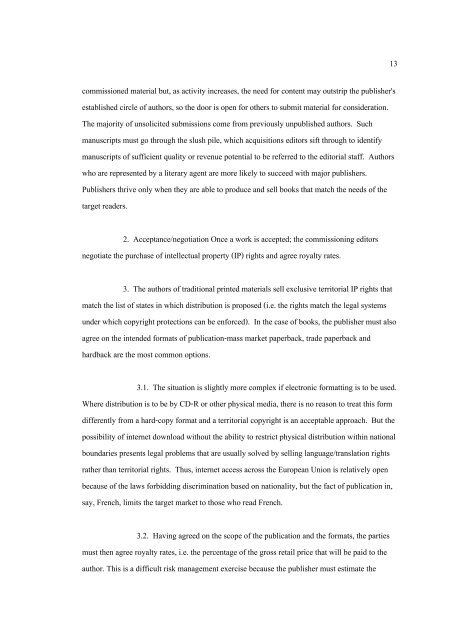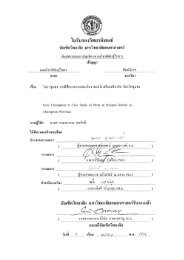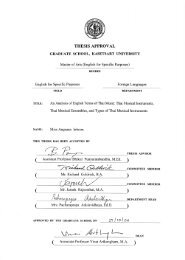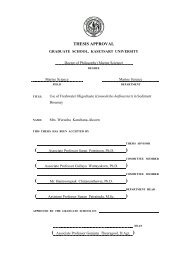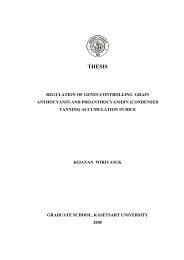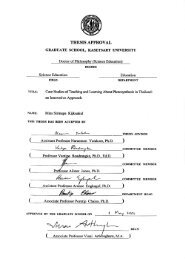Graduate Students of Kasetsart University
Graduate Students of Kasetsart University
Graduate Students of Kasetsart University
Create successful ePaper yourself
Turn your PDF publications into a flip-book with our unique Google optimized e-Paper software.
commissioned material but, as activity increases, the need for content may outstrip the publisher's<br />
established circle <strong>of</strong> authors, so the door is open for others to submit material for consideration.<br />
The majority <strong>of</strong> unsolicited submissions come from previously unpublished authors. Such<br />
manuscripts must go through the slush pile, which acquisitions editors sift through to identify<br />
manuscripts <strong>of</strong> sufficient quality or revenue potential to be referred to the editorial staff. Authors<br />
who are represented by a literary agent are more likely to succeed with major publishers.<br />
Publishers thrive only when they are able to produce and sell books that match the needs <strong>of</strong> the<br />
target readers.<br />
2. Acceptance/negotiation Once a work is accepted; the commissioning editors<br />
negotiate the purchase <strong>of</strong> intellectual property (IP) rights and agree royalty rates.<br />
3. The authors <strong>of</strong> traditional printed materials sell exclusive territorial IP rights that<br />
match the list <strong>of</strong> states in which distribution is proposed (i.e. the rights match the legal systems<br />
under which copyright protections can be enforced). In the case <strong>of</strong> books, the publisher must also<br />
agree on the intended formats <strong>of</strong> publication-mass market paperback, trade paperback and<br />
hardback are the most common options.<br />
3.1. The situation is slightly more complex if electronic formatting is to be used.<br />
Where distribution is to be by CD-R or other physical media, there is no reason to treat this form<br />
differently from a hard-copy format and a territorial copyright is an acceptable approach. But the<br />
possibility <strong>of</strong> internet download without the ability to restrict physical distribution within national<br />
boundaries presents legal problems that are usually solved by selling language/translation rights<br />
rather than territorial rights. Thus, internet access across the European Union is relatively open<br />
because <strong>of</strong> the laws forbidding discrimination based on nationality, but the fact <strong>of</strong> publication in,<br />
say, French, limits the target market to those who read French.<br />
3.2. Having agreed on the scope <strong>of</strong> the publication and the formats, the parties<br />
must then agree royalty rates, i.e. the percentage <strong>of</strong> the gross retail price that will be paid to the<br />
author. This is a difficult risk management exercise because the publisher must estimate the<br />
13


